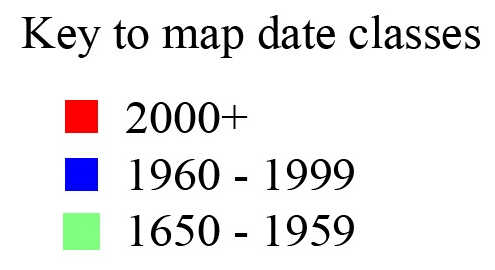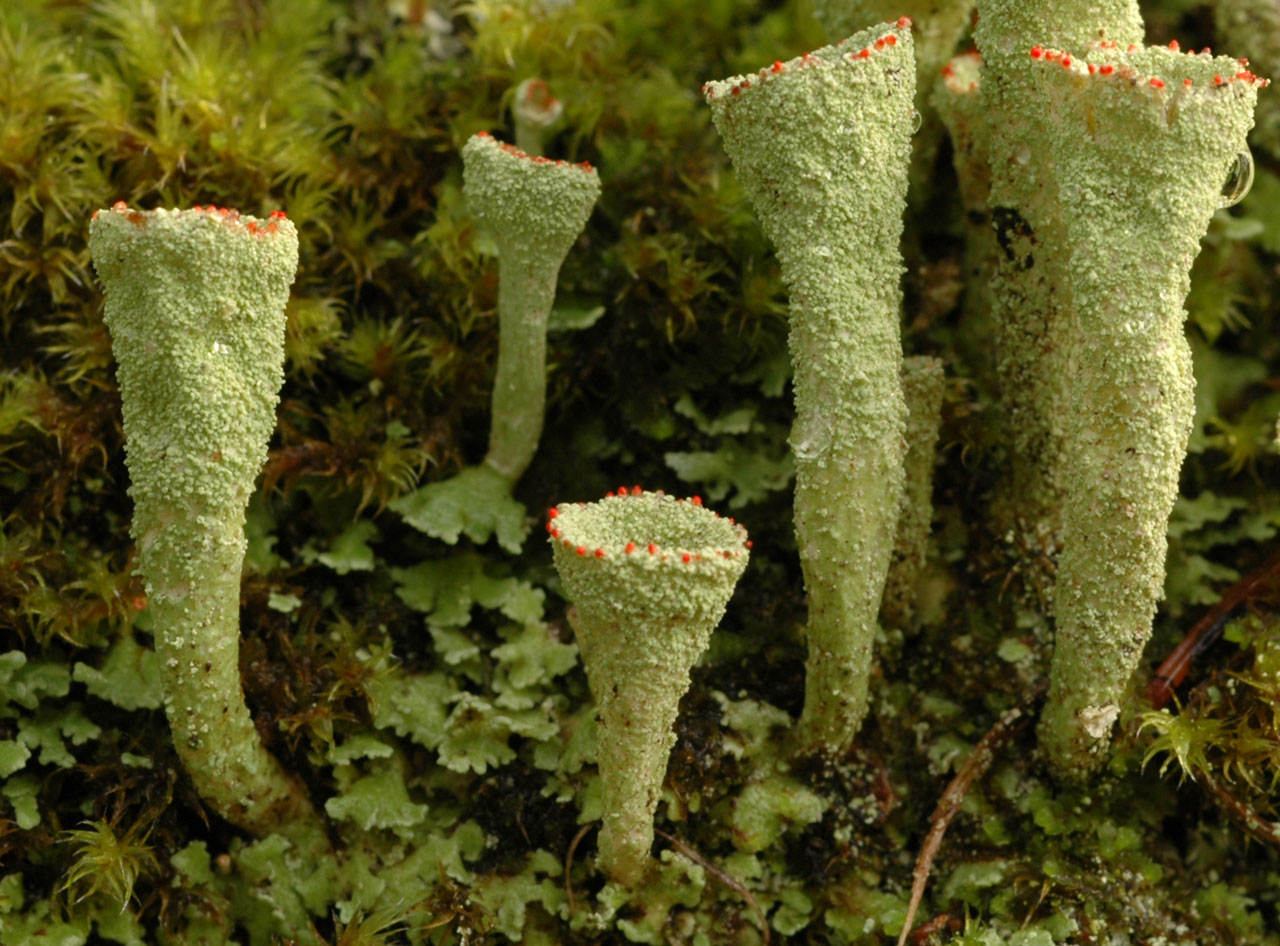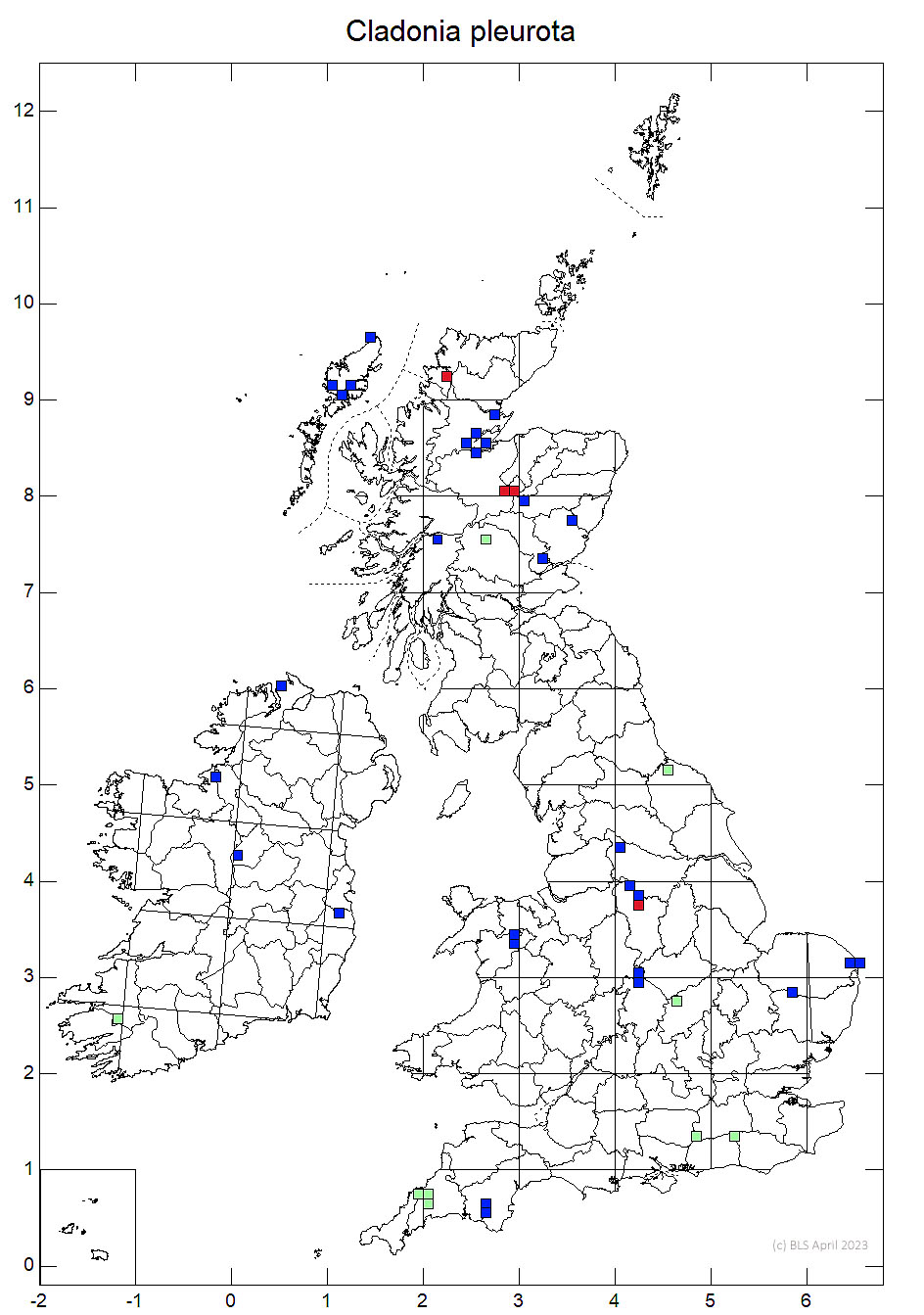A Pixie Cup with red apothecia and yellow-green podetia, distinguished from others in the Cladonia coccifera aggregate by the upper parts being coarse sorediate, but the base being corticate. Most easily confused with the unrelated C. carneola, which has brown rather than red apothecia and pycnidia, is neater with a more flared cup and is finely sorediate to the base. The status in Britain is not clear due to probable confusion with sterile C. carneola in the past. Upland and possibly mainly montane.
Podetia yellowish or pale green, unbranched, with regular scyphi to 0.7 (–1.5) mm diam.; surface granulose, sorediate inside and on the upper margins of cup, continuously corticate below. Basal squamules persistent, lobated to crenate. Apothecia rare (not known in British material), pycnidia black to reddish on margins of scyphi, sometimes stipitate, containing red gel. Thallus C–, K–, Pd–, UV– (usnic, isousnic and porphyrilic acids, zeorin).
Part of the Cladonia coccifera aggregate but the podetia are regular, broadly cup-shaped, and coated with coarse, granular soredia above and ± corticate at the base, sometimes squamulose at the base. British material needs critical revision and much resembles the unrelated C. carneola, which has brown rather than red apothecia and pycnidia.
On Racomitrium heath and rocks near areas of late snow-lie, also upland heathlands.

Very rare. N. Wales, N.E. Scotland (Cairngorm Mountains), scattered elsewhere, although some of these records may be misidentifications.
Britain: Data Deficient
Pino-Bodas, R., Sanderson, N., Cannon, P., Aptroot, A., Coppins, B., Orange, A. & Simkin, J. (2021). Lecanorales: Cladoniaceae, including the genera Cladonia, Pilophorus and Pycnothelia. Revisions of British and Irish Lichens 19: 1-45. Link
Text by N A Sanderson, based Pino-Bodas et al (2021)

